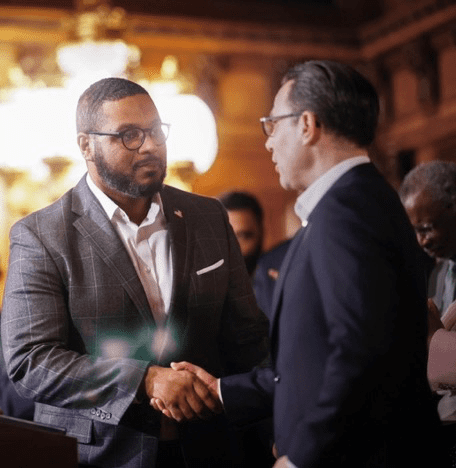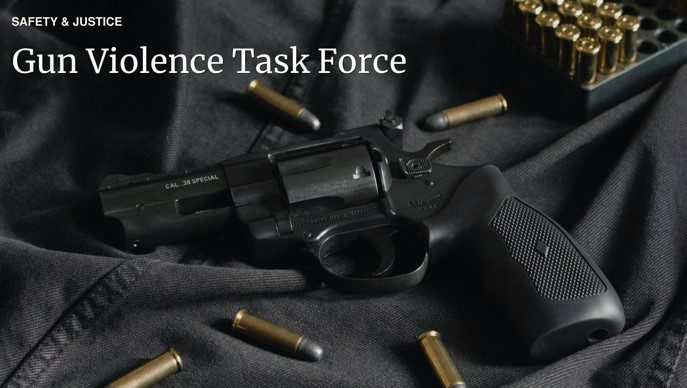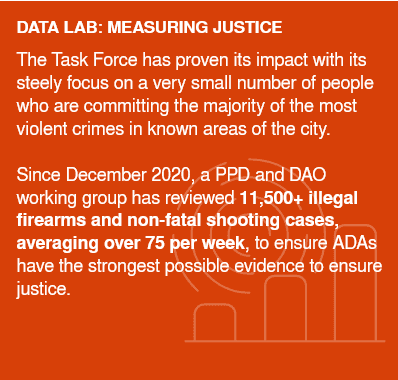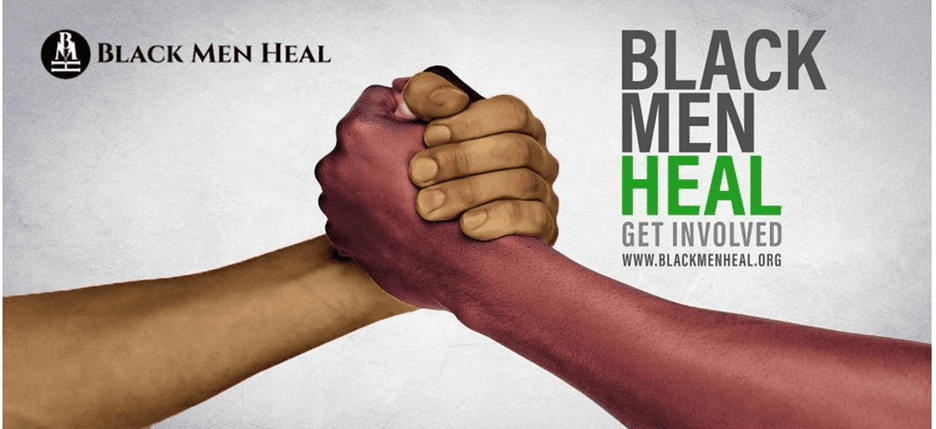What is Intervention? Why is it the Coalition’s Focus?
At his January swearing in ceremony at Russell Conwell Middle School in Kensington, Philadelphia Police Commissioner, Kevin Bethel said Mayor Parker’s “P.I.E.” model for policing within the city will be threefold: “prevention, intervention, and enforcement.”
As Commissioner Bethel put it, “Prevention, is about reclaiming our future…investing in education and providing our youth with alternatives to the streets. Intervention is about recognizing we cannot arrest our way out of this problem…it involves partnering with our citizens and stakeholders to provide support and treatment for those in need, and lastly, Enforcement means restoring law and order humanely and with dignity.”
The Civic Coalition to Save Lives appreciates this approach, as we learned early on that Intervention programs can impact gun violence in the near-term, as they are focused on those individuals identified through a data-informed risk assessment to be at the very highest risk of killing or being killed.
While the Coalition is laser-focused on intervention, we also recognize the important role prevention and transformation programs play in the continuum of services that contribute to public safety. As we learned, we need both (prevention/transformation) and intervention.
Why is the Coalition focused solely on Intervention? Intervention offers the most immediate results and is often under-resourced. It can stop the shooting, disrupt the cycle of trauma and save lives now. Additionally, as business, civic and philanthropic organizations, many of our members have long been (and continue to be) invested in prevention and/or transformation efforts and initiatives.
Reason for hope: The power of civic and public partnership has proven to help bend the curve on the biggest crisis of our city. Of those at the highest risk of shooting someone or being shot, approximately one third are now involved in intervention programs.
And while there is still more work to be done, shootings were down by more than 20% last year.
Governor Proposes $100M Investment to Reduce Gun Violence

Governor Josh Shapiro’s proposed FY25 budget provides a $100 million increase in initiatives to reduce gun violence. That investment includes:
- The creation of a statewide Office of Gun Violence Prevention at the Pennsylvania Commission on Crime and Delinquency (PCCD) focused on supporting community-based programs designed to reduce gun violence through technical assistance, capacity support and research;
- Investing in grants to help law enforcement agencies in investigations and prosecutions to gun violence crimes;
- Law enforcement strategies to ensure dealers comply with gun safety laws;
- Efforts to enhance data collection and analysis around gun violence, engage in community education initiatives, support evidence-based interventions and collaborate with coroners and law enforcement.
Other initiatives include blight reduction, after-school learning opportunities for young people and an increase in non-profit security grants for places of worship. The funding through PCCD builds on past efforts, which contributed to a 20% decrease in homicides in Philadelphia, according to CeaseFirePA.
Click here for more information on Governor Shapiro’s gun violence budget proposal.

The Technology of Intervention
Behind locked, unmarked doors in an older, nondescript building in Center City, skilled data and computer analysts with the District Attorney’s Gun Violence Task Force are conducting high-tech detective work. Working with local, state, and federal law enforcement investigators and agents, task force members use sophisticated technology and equipment to solve shooting crimes, prevent future incidents, and save the lives of the people most likely to shoot or be killed.
Danielle Burkavage, director of Intelligence for the Philadelphia District Attorney’s Gun Violence Task Force and Gun Violence Task Force Chief, Bill Fritze recently gave several members of the Coalition’s steering committee a tour of the facility to see how the organization works in real-time.
Inside the no-frills office space, task force members use computers, software programs, and mobile device forensic tools to extract investigative data and evidence such as call logs, text messages, contact lists, and location information to share with police. Their intervention-based efforts, coordinated work, and technology enable law enforcement officers to gather and utilize available information from a variety of sources more quickly and effectively, helping to combat group violence, gun violence, and illegal firearms.
“Our whole goal is to figure out the drivers of crime, and the best way to do that is to collaborate with the Police Department — their information is our information, and our information is their information,” said Burkavage. “We are able to clear cases more quickly and build strong prosecutorial evidence when we work together – the Police Department can’t do it alone, our law enforcement departments everywhere can’t do it alone, we have to do it together.”

Burkavage said it can be challenging to keep up with the pace of technology and innovative software solutions with limited resources. While part of the Philadelphia District Attorney’s Office, the Task Force is funded primarily through grants and receives no financial compensation for sharing its technology and resources with other federal and state law enforcement partners. State-allocated resources funneled to Philadelphia through the Pennsylvania Office of the Attorney General support just one-fifth of the Task Force’s annual budget.
“We’re able to learn a lot about drug and criminal activity through social media and text messages, thanks to the technology the Task Force uses to capture and quickly analyze smartphone data. PPD detectives investigating shootings and homicides are in our office every day using these tools.”
Community Drivers:
Spotlighting the Intervention Work on the Ground

While all communities face mental health challenges, Black communities often deal with more stigma and discrimination.
That’s why, in 2018, Tasnim Sulaiman and Zakia Williams launched Black Men Heal in Philadelphia, making mental health care more accessible and culturally relevant for those disproportionately affected by trauma and violence. What began as an all-volunteer and donation-based organization with just a handful of clinicians contributing their time, professional services, and unused office space has grown to provide more than 3500 free therapy sessions and served close to 500 men.
Learn more in this Community Driver spotlight.
Tools of the Trade: APRICOT, A Specialized Digital Case Management System, Helps Coordinate Intervention Services in Philadelphia

In the constellation of intervention-based solutions to reduce gun violence, a single point of coordination is the North Star guiding effectiveness and improved outcomes. To help navigate collaborative processes, in 2023, the City of Philadelphia began using a case management software program called Apricot, a centralized digital platform to collect and monitor information across City offices and programs and community partners, such as social services and mental health providers.
Given the importance of such a tool and consideration for administrative challenges during the City’s budgeting season and administration change, the Civic Coalition to Save Lives offered to provide immediate funding for the administrative support function.
“This is what we are here to do – bring resources and support to people, programs and services crucial to reducing gun violence through intervention-based strategies,” said the Civic Coalition to Save Lives’ Estelle Richman. “Digital case management systems are critical to facilitating collaboration to share information, coordinate intervention services, and monitor progress to make every aspect of the city’s gun violence reduction strategy work most efficiently. It’s about enabling teams and providers to use the resources available to the maximum benefit for the people they serve.”
“This is what we are here to do – bring resources and support to people, programs and services crucial to reducing gun violence through intervention-based strategies.”
Estelle Richman
Executive Director, Civic Coalition to Save Lives